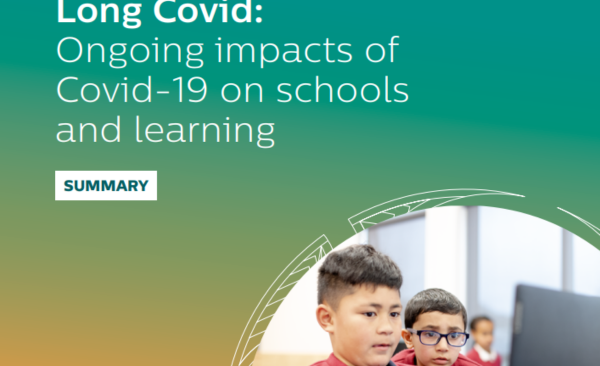What did we find?
- Learners’ reported wellbeing has improved - learners feel safer from Covid-19 in 2023 and more connected to their friends than they did in 2020 and 2021.
- There are ongoing impacts on attendance, and four in 10 principals tell us that learner behaviour is worse or much worse than expected at this time of year.
- Learners’ progress and achievement are increasingly impacted, particularly the progress and achievement of Māori learners, Pacific learners, and those in poorer communities.
- Principals tell us that their wellbeing and ability to cope with workload has declined over the course of the pandemic.
What can schools do?
The cumulative impact of the past three years means that education in New Zealand has ‘Long Covid’ and it will not easily bounce back to business as usual. Our research identified two areas where schools can focus to recover from ‘Long Covid’ in education: making up for lost learning opportunities now, and targeting learning support for those who have been most impacted by the pandemic.
Making up for lost learning opportunities now
- Get more learners to school every day to help maximise their time for learning. You can:
- increase understanding of the importance of attendance and awareness of how often learners are attending school
- identify and tackle specific barriers to attendance.
- Understand learning gaps of all learners. You can:
- identify where learners should be at in all year levels and subjects
- prioritise learning gaps in reading, writing, and numeracy, including through the wider curriculum
- monitor the effectiveness of responses and adapt as necessary.
- Address these gaps through accelerating learning. You can:
- help learners, parents, and whānau understand their own progress through timely, relevant, and tailored feedback
- as the new common practice model is adopted, focus on using an adaptive teaching approach, recognising that learners learn at different rates and require different forms and levels of support
- provide tailored group and individual acceleration programmes.
Targeting support to those most impacted
- Identify which learners have been most impacted. You can:
- recognise the particular challenges faced by learners in poorer communities
- have teachers, counselling staff, teacher aides, and other staff work together to assess learner needs, including knowing barriers to learning
- use school-wide data to make informed decisions. This includes identifying patterns of attendance, academic achievement, behavioural and socio-emotional needs, engagement in school, and interaction with peers.
- Have multi-tiered, targeted, and intensive support for learning. You can support teachers to:
- provide explicit and systematic instruction – this has been found to be effective in reading, writing, and mathematics
- break down content or tasks to enhance clarity, adapt lessons while maintaining high expectations for all learners, and make sure learners have opportunities to meet those expectations.
- Connecting and working with their parents and whānau to support learning. You can support teachers to:
- increase engagement of parents and whānau, and learners - quickly and more often where there are concerns
- clarify learning objectives, skills, and knowledge necessary to achieve desired learning outcomes, and provide information to support parents and whānau.
Useful links
To support learners
To support teachers and principals


